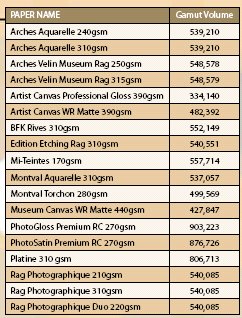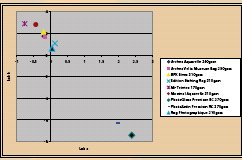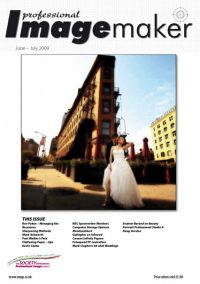articles/Paper/cansoninfinity-page1
Paper Chase Canson Infinity - part 1 of 1 2 3 4
by Mike McNamee Published 01/06/2009

The gamut volumes are in line with results from other materials of their class, the glosses and lustres are always higher than the matt art surfaces.
This name is one of the oldest in paper making, extending back five centuries to 1557. The plant is at Annonay, (west of Grenoble and north of Marseille).
The original Arches mill is at Arches et Archettes, northeast of Dijon in the Vosges. In the 1900s many of the mills agglomerated under the banner of Arjowiggins, also bringing in the Rives brand. The names have been associated with fine art print making for centuries, their inkjet variants have been popular in the USA for some years and have now been more actively promoted in the UK.
Fotospeed are now the UK distributors. Under the Canson banner the papers have retained their original French source names, eg Arches Velin Museum Rag, which is a good thing as they are names known and revered over a long period in the art world.
The Range
Presently the range includes 14 surfaces with a predominance of 'art surfaces' intended for use with the matt black ink variants. There are two 'photographic' papers, a gloss and a satin. Sizes include DIN and US sizes, large sheet (24"x35" and 35"x45.76") along with 17-, 24-, 36-, and 44-inch rolls.
The macro photograph in low-angle lighting shows the surface texture of the art samples that are provided in the 'Discovery' pack. This contains one sheet each of nine surfaces. We were able to print single samples using the ICC profiles available from the Canson Infinity website.
Profiles are available for all professional printers: Canon (8 models), Epson (19 models) and HP (4 models). Each profile download link has an instructions pdf (which are actually the same file with different names, don't download the lot!) you can look up the vital 'media' setting at the end on page 7. The profiles themselves seem well made, they created smooth transitions in both soft proofing and printing. For our trials we (incorrectly) chose the nearest media setting to our judgement of the paper class (eg Velvet for the textured surfaces, Premium Semi Gloss Photo Paper for the satin).

The plot shows the generally neutral, to very slightly cream, base-colour of the art papers (clustered around the zeroorigin of the graph). The two outliers in the bottom left are the very cool, gloss and lustre surfaces.
The Photo Papers
These two are different to the more art-oriented surfaces in the rest of the range and are treated separately. We used the Canson profiles which created a reasonably accurate print. They were about 5% too dark and the bulk of the errors lay in the lightness channel. There was an overall rotation of skin tones towards too red (by as much as 10 degrees) as the profile mapped the tones to the very cool base white. This is a characteristic of both these papers; they are a very cool blue, one of the coolest we have measured. They also react very strongly in the UV booth; the OBA lift is up to 107%, almost 12% above the base white. The metamerism was very low indeed (0.2 ΔE Lab, from memory the lowest we have ever measured and to all practical intents it was zero). The satin differentiated shadows down to 15 RGB points, the gloss to 20 RGB points.
Both samples differentiated highlights at 252 RGB points.
The Dmax was 2.30 for the gloss, 1.94 for the satin.
Overall then an excellent set of statistics and good-looking prints. The satin has a particularly nice finish (sorry about the imprecise description, you have to see it to assess it!).
You are currently on page 1
- Paper Chase Canson Infinity page 1
- Paper Chase Canson Infinity page 2
- Paper Chase Canson Infinity page 3
- Paper Chase Canson Infinity page 4
1st Published 01/06/2009
last update 09/12/2022 14:52:11
More Paper Articles
There are 0 days to get ready for The Society of Photographers Convention and Trade Show at The Novotel London West, Hammersmith ...
which starts on Wednesday 15th January 2025





